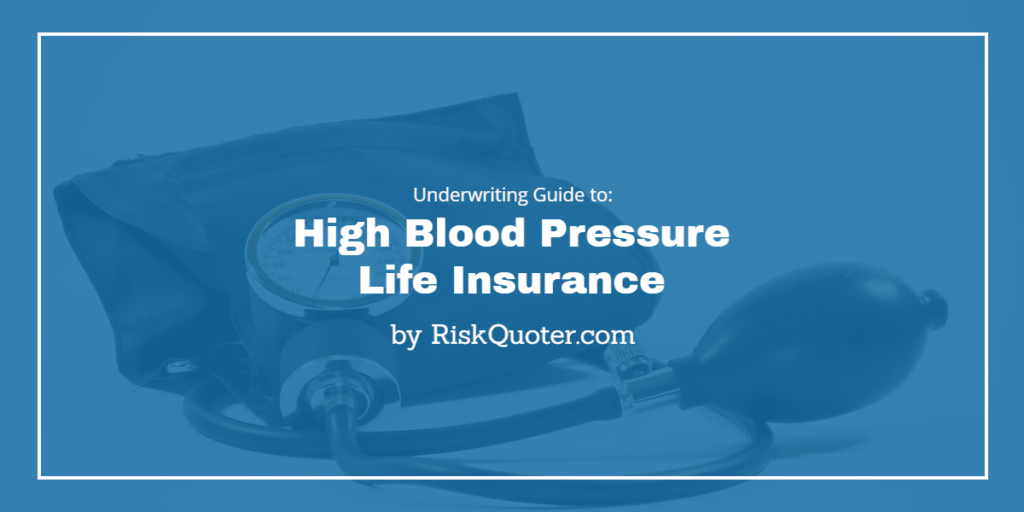Nail the paramedical exam—your golden ticket to a favorable life insurance outcome. Here’s your roadmap to making it easy.
Paramedical Exam Overview
A paramedical exam is more than just a quick Q&A about your health. It’s a screening device insurance companies use to determine if you are eligible for their life insurance policy. The results can mean the difference between getting affordable coverage or getting rated or declined.
You will be measured for height and weight, have your blood pressure and pulse checked, and sometimes even undergo a resting EKG.
As part of the paramed, you’ll be asked about your medical history, and you will sign authorization forms allowing insurance companies to search prescription databases, the Medical Information Bureau and obtain records from your physician.
Paramedical exam screening is consistent whether you buy cash value term life insurance, term life, or universal life.
Bonus Tip: Great News – There are companies now offering you $500k – $3 million with no medical exam, and a few companies now offer instant life insurance approvals with no paramed if you meet the criteria!
How to Pass Your Paramedical Exam
Download a copy of our Foolproof Paramed Exam Guide!
- Ask your Agent – Exam requirements vary based on the amount of life insurance applied for and your age, and companies provide agents with charts that show the exam requirements for you.
- Know Your Dates – Have the dates of any surgeries, treatments, and tests.
- Physician’s Contact Information—Please Provide the names and contact information of any physicians you have visited in the past five years.
- Medications and Dosages – Have the names and dosages of all medicines you take. Take your meds on exam day.
- Feeling Sick? Reschedule! – Lab results and blood pressure may elevate, and you will miss out on the best rate classes.
- Watch What You Eat: For a few days before the exam, limit salty, fatty, and sugary foods.
- Fast – For 6-8 hours before your exam for best results, but do not fast if your medical condition requires you to eat.
- No Alcohol – Don’t drink before your paramedic exam – Don’t drink for at least 48 hours before the exam.
- No Tobacco – If you smoke or use tobacco products, stop using them for a few hours before your exam, as they tend to elevate your blood pressure.
- The Paramed is Not a Confessional – Make sure you understand the question before answering. You don’t have to guess, and you shouldn’t reply with more than what they are asking you for.
- Limit Exercise Activity – Skip your workout on exam day – Working out temporarily raises your blood pressure and has also been known to cause elevated liver test results.
- Morning Appointments Only – Make sure you schedule a morning exam as your blood pressure is typically lower, and it will be easier on you since you are fasting.
Best Life Insurance Companies for High Blood Pressure in 2024
How to Secure the Best Scuba Diving Life Insurance Coverage Today
HIV Life Insurance – Everything You Should Know
Paramedical Exam Guides by Life Insurance Company
As we mentioned, most companies today offer a consumer guide to help you better understand the process.
You can get a PDF copy here.
- AIG
- Banner Life
- Corebridge Financial
- ExamOne
- John Hancock
- Lincoln Financial
- Pacific Life
- Protective Life
- Prudential
- Transamerica
We’ll add additional companies as they become available.
What Happens if You Fail the Paramed Exam?
The paramedical examiner makes no decisions; they collect the medical history and lab samples.
The samples are then sent to the lab for testing, and the results are transmitted to the insurance company.
So, how do you fail a paramed exam and get declined by the insurance company?
In our experience, the following are the most likely reasons for failing:
Testing positive for marijuana but not disclosing use on the application or paramed exam. You will get declined every time, making getting coverage with other companies more difficult.
Elevated lab results may indicate a significant health issue. Examples include PSA levels above 4.0 or significantly elevated liver enzyme results.
Can you retake the paramed exam?
No, the insurance company will not let you take the test again. It’s usually easier to move to a new company instead.
Let us know if you’ve had a problem in the past, as we can help fix it.
Special Underwriting Notes
Special note for cigar smoking and chewing tobacco programs.
If your quote requires a negative urine sample, stop long enough beforehand to ensure the negative test.
If you need a quick overview of the entire application process, our Life Insurance 101 guide is helpful.
What if you are converting a life insurance policy?
In that case, you can disregard this entire article because conversions don’t require medical exams unless you add a life insurance rider for long-term care benefits or increase death benefits.
For business cases such as SBA loans or key person coverage, we can schedule all the exams simultaneously or on different days to fit your schedule.
If you’re getting life insurance to satisfy a divorce decree, you may consider a no medical exam life insurance policy instead if available.
If you are a non-U.S. citizen, remember that the paramed exam must be completed in the U.S.
FAQs
The most common questions we receive from clients include the following:
Life insurance medical exams test for elevated blood sugar levels, kidney functions, liver functions, cholesterol, hepatitis, blood cell counts, PSA levels, illegal drugs, and cotinine.
Your lab results will be available after your paramedical exam is completed. Your agent can get a copy.
The life insurance companies pay for the
No, more and more companies are eliminating the exam requirement.
In most cases, no. If you have unfavorable lab results, moving you to another life insurer will be easier.
The examiner collects a few small vials of blood and gives you a cup to collect the urine; no, they don’t come into the bathroom with you.
The more life insurance you apply for, the greater the paramed exam requirements.
You have a choice between having the paramed at home, or you may visit a local facility, which is usually a Quest Diagnostics lab.
The paramedical examiner will record three blood pressure readings and check your pulse.
Paramed exams are good for 6-12 months, depending on your age and the company you apply to.
Yes, your exam may be used with another life insurance company.
Paramedical Exam Questions
Have you been diagnosed with or treated for:
- High blood pressure?
- High cholesterol?
- Any high-risk health conditions such as:
- Heart Conditions? (chest pain, murmur, heart attack, EKG)
- Cancer? (Breast cancer, melanoma, prostate cancer)
- GI Problems – Ulcerative colitis, Crohn’s Disease, Hepatitis?
- Endocrine Disorders – Diabetes, Thyroid Conditions
- Respiratory Problems – asthma, emphysema, sleep apnea
- Mental or Nervous Disorder? (anxiety, depression, OCD, suicide ideation/attempts)
- Brain Disorders? (Seizures, epilepsy, TIA, MS, strokes)
- Have you ever been diagnosed with AIDs?
- Any disorders of the blood or immune system? (anemia, leukemia, lymphoma, HIV, etc.)
- Do you drink alcohol?
- If yes, how often do you drink?
- Have you ever used illegal drugs? Marijuana is no big deal with the right companies.
- If yes, what did you use, and when?
- Drug addiction and/or alcohol abuse?
- Is any other health history not mentioned?
- Do you smoke or use other types of tobacco?
- What types, how often, and if you quit, when did you quit?
- They’ll also ask about your family history of medical problems with your parents and siblings.
Let the examiner know about all the physicians you’ve used so underwriting can order the correct medical records.
continued
We use Human API when available to speed up the medical records process.
With the increase in accelerated underwriting and instant life insurance approvals, insurers rely heavily on their life insurance statistics and data to determine if you even need a paramedical exam.
Life Insurance Lab Tests
The life insurance paramedical will require blood and urine samples.
Blood Tests
- Serum HIV – tests for the presence of HIV
- Hepatitis C Antibody – Detects prior infection.
- Glucose – Used to help diagnose and evaluate diabetes.
- HbA1c – Evaluates glucose levels for the prior 2-3 months.
- BUN – Used to evaluate and diagnose kidney disease.
- Creatinine – Used to assess kidney function.
- Estimated GFR – Measures the functions of the kidneys.
- Alkaline Phosphatase – Checks for bone or liver disorders.
- AST – Tests for liver, heart, or muscle disorders.
- ALT – Test for liver disease.
- GGT – Alcohol use, certain medications, and liver disease.
- Blood Alcohol – Tests for ethanol in your blood.
- Total Protein – Screens for kidney and liver disease.
- Albumin – Tests for advanced liver disease.
- Globulin – This may indicate infections, immune disorders, etc.
- Cholesterol – Measures the amount in your bloodstream.
- HDL Cholesterol – The “good” cholesterol.
- LDL – The “bad” cholesterol that clogs arteries.
- Cholesterol/HDL Ratio – Measures total cholesterol to HDL.
- LDL/HDL Ratio – Used to calculate heart disease risk.
- Triglycerides – This may indicate heart disease and alcohol use.
- PSA – Used to evaluate prostate cancer risk.
Urine Tests
- Glucose – A test for diabetes.
- Protein – Screens for kidney problems.
- Leukocyte Screen – kidney or bladder infections.
- Hemoglobin Screen – may indicate kidney or urinary tract disease.
- White Blood Cells – May indicate an infection.
- Red Blood Cells May indicate infection, kidney damage, or cancer.
- Granular Casts – Used to check kidneys.
- Hyaline Casts – Significant elevations may indicate kidney problems.
- Specific Gravity – Evaluates kidneys.
- Urine Temperature – This is taken to ensure false samples are not provided.
- Creatinine – is removed from the body by the kidneys.
- Protein/Creatine Ratio – Evaluates kidney functions.
- Cotinine – This is a metabolite of nicotine.
- Diuretic Agents – Screen for blood pressure drugs.
- Beta Screen – Looks for heart medications.
- Cocaine – Illegal Drugs
- Marijuana – Drug Screen
- Codeine – Illegal Drugs
- Hydrocodone – Illegal Drugs
- Morphine – Illegal Drugs
- Hydromorphone – Illegal Drugs
- Oxycodone – Illegal Drugs
- Oxymorphone – Illegal Drugs
- Fentanyl – Illegal Drugs
Lab Testing Advice
It’s hard, if not impossible, to undo any of the following.
Important Note about Marijuana and Certain Medications!
If you use marijuana medically or recreationally, you must disclose this during the application and paramed exam process. If you don’t, the insurance companies will think you are trying to hide something, and you will most likely be declined.
Do you take a prescription opioid? You must disclose this during the application and exam. If the use is temporary, the best advice is to wait until after you stop using the opioid.
What is Reflexive Testing?
Reflexive testing is more specific due to an elevation of one of the initial lab tests.
For example, if your labs test positive for marijuana, it may trigger tests for other illegal drugs.
Another example happens when certain liver functions related to alcohol use are elevated. A CDT (Carbohydrate-deficient Transferrin) test provides a better picture of alcohol use over the past 2-3 weeks.
A positive CDT is the “kiss of death” in underwriting.
You Can’t Hide Your Labs
As life insurance companies move away from requiring paramedical exams, underwriting teams have been looking for better ways to evaluate your application.
ExamOne released its LabPiQture product in 2022. It’s a game changer for companies wanting to get a look at all your lab results over the past seven years.
It’s not so good if you are one of those applicants looking to hide past lab results or maybe fail to disclose your tobacco use (a $4 billion problem for the industry).
LabPiQture gives life insurers access to the lab results from the last seven years that Quest and LabCorp completed. Quest and LabCorp represent approximately 98%1 of the lab testing market in the U.S.
Special Tests for Older Applicants
More companies are implementing senior life insurance underwriting requirements.
Examples of tests include:
Chair Stand
The examiner will ask you to sit in a chair and stand up.
This test may be repeated a few times throughout the exam.
Clock Drawing
The examiner will ask you to draw a clock with 1-12 on the clock.
The examiner may then ask you to draw a specific time.
The Gait Test
You’ll be asked to walk across the room and back.
Assess the insured’s ability to walk normally across a room and back.
Word Recall
The examiner will tell you five words they want you to remember.
During the exam, they will ask you to recall those words.
We’ll let you know beforehand if your paramed exam may involve one of these tests.
If your spouse is applying for life insurance, make sure they pay attention while you complete your tests, as they will need to complete the same tests.
Final Thoughts
Paramed exams are better than some agents make them out to be. That’s because some agents exaggerate paramed exam difficulties to get you to buy more expensive final expense policies.
In many cases, the life insurance medical exam takes 25-45 minutes to complete.
We’ll schedule your
We use ExamOne whenever possible, as it’s part of Quest Diagnostics.
They offer convenient locations and have been the most consistent paramedic exam company.
We’ll prep you to ensure you know what to expect. We work for you, not the life insurance company.
We aim to help you find your best term life insurance rate based on your medical history.
Thank you.
- CSIMarket – 8-9-2023 review ↩︎



